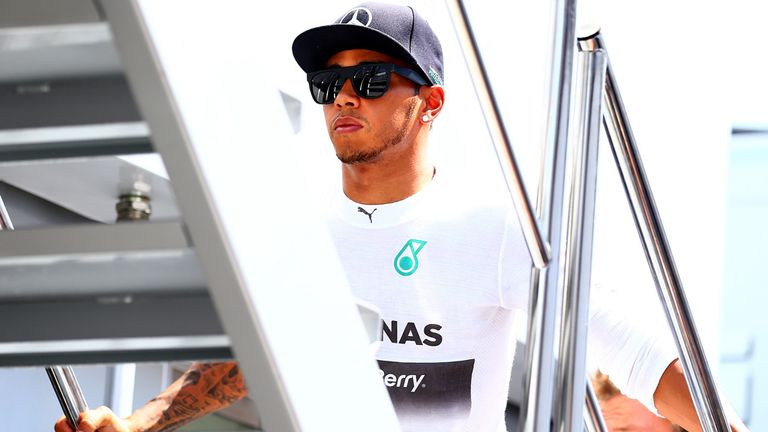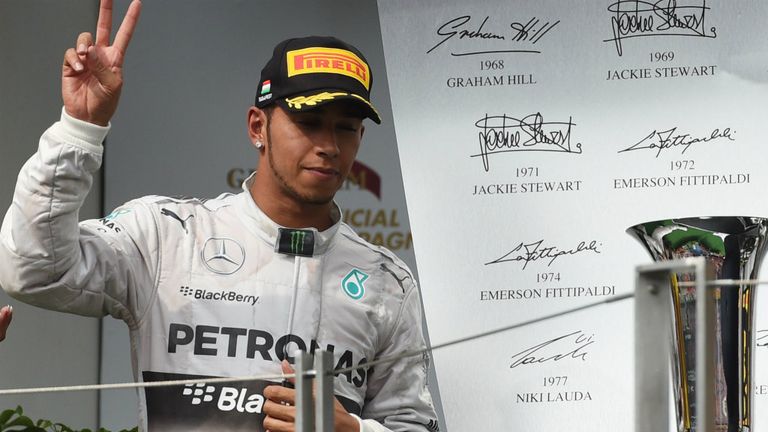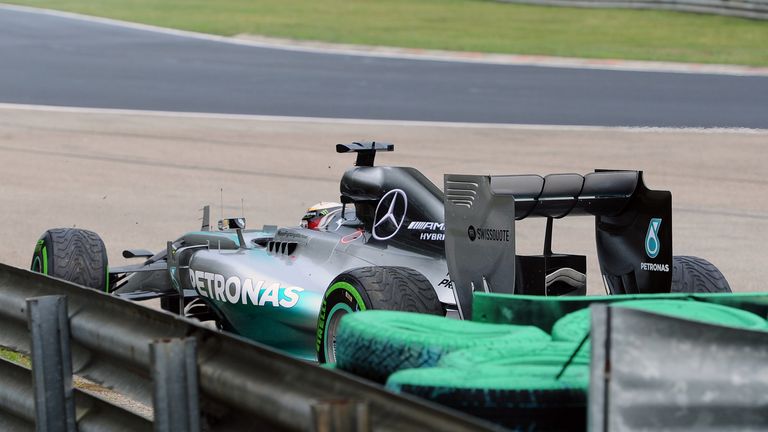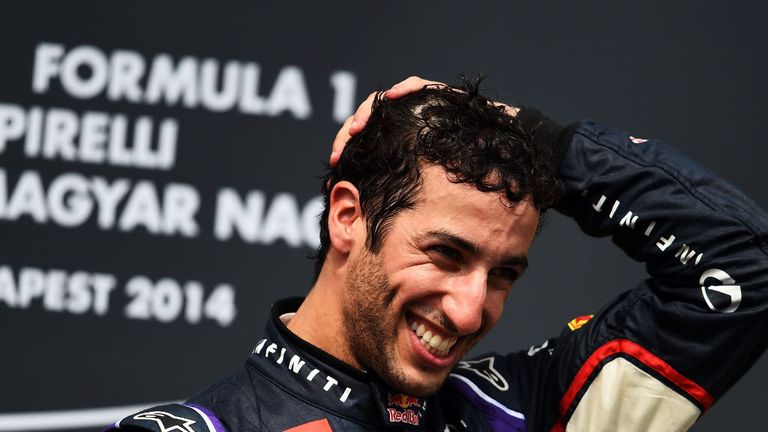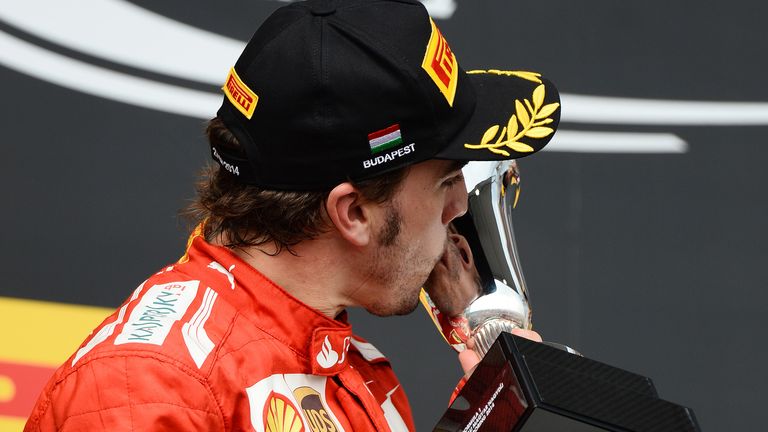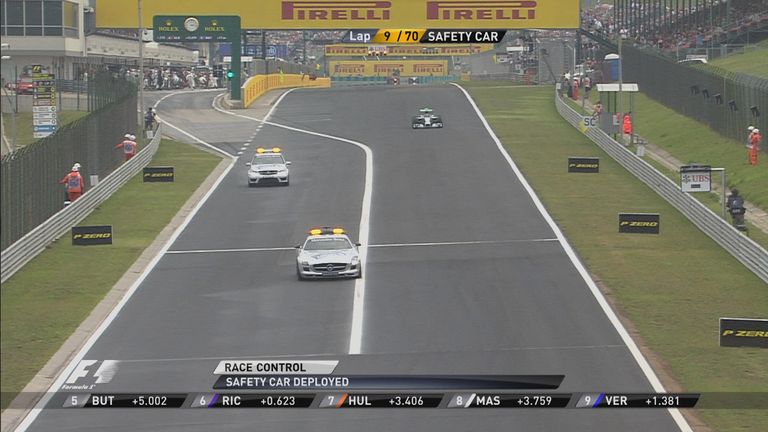Conclusions from the 2014 Hungarian GP
Why Lewis Hamilton's refusal to yield did Mercedes a favour, how Merc missed a winning strategy, Ricciardo's threat to Vettel, the moment that cost Bottas, and...
Monday 22 September 2014 14:15, UK
Hamilton’s clear thinking damns Mercedes
"Imagine if we'd imposed team orders. What a terrible thing that would be for F1 and the Mercedes philosophy in motorsport." - Paddy Lowe, Executive Director (Technical) Mercedes F1 Team, April 2014.
If only they had listened to themselves.
The best way of appreciating the woeful, staggering foolishness of Mercedes’ attempt, appropriately ham-fisted, to impose team orders on Lewis Hamilton midway through the Hungarian GP is to consider the repercussions if he had yielded to Nico Rosberg - and, as an inevitable consequence, lost further ground in the World Championship fight.
Think of the accusations and the outrage, the conspiracies and the damage done to the Mercedes brand. Think of what would have been said of Rosberg and the credibility of his World Championship lead. Think of the nuclear fall-out. And think of how Hamilton might have responded and his likely irrevocable disenfranchisement from the team. Just think. Just do the one thing that Mercedes' piteall clearly weren't.
Ultimately, Hamilton’s intransigence did Mercedes – the group, the brand and the team - a priceless favour.
But the questions remain begging to be asked. Surely the Mercedes pitwall must have realised that with the soft tyres a second a lap faster than the mediums then, even if Rosberg had to make another stop, he was still in the same race as Hamilton. Surely they must have noticed that for Rosberg to gain track position Hamilton would have to slow down first. And surely they must have realised that, if Hamilton had slowed down and yielded, then not only was he liable to lose out against Daniel Ricciardo and Fernando Alonso but that he was certain to finish behind Rosberg too.
Just what were they thinking? Answer: They just weren't thinking at all.
And Merc missed a winning call
Hamilton has described himself as being “shocked” when the call came to yield to his solitary title rival. But what’s truly shocking is not merely the scale of Mercedes’ gross misjudgement but that only Hamilton - despite the damage done to his equilibrium by two technical malfunctions in a week and despite the distraction of being at the maelstrom of the year’s most helter-skelter race – seemed to be unique at Mercedes in fully grasping how the team's botched strategy would unfold.
“If I'd have let him past, he would have had the opportunity to pull away and when he does pit, he's going to come back and overtake me, so I was very, very shocked that the team would ask me to do that, to be able to better his position,” Hamilton remarked sagely during the post-race press conference.
Credit for Hamilton for his clear-thinking in such trying circumstances. And yet, after further reflection, Hamilton might well ask why his own crew why, if they knew that Rosberg was behind him on the road and had to change tyres again, they didn’t call him in for an identical strategy to run to the end on the faster soft tyres and cover off the World Championship leader in the process. Had they done so then Hamilton would probably have won the race too. Look at how the numbers stack up: Rosberg crossed the line just six seconds behind Ricciardo having fallen over two seconds behind his team-mate prior to his final stop and then losing a chunk of time when he re-emerged behind Raikkonen and Bottas. The opportunity was there for the taking.
As opprobrium is heaped on Mercedes, the irony is that the most damning accusation of all has been largely overlooked. It’s not that the team misjudged the race, the World Championship battle, public perception, strategy and all the rest; no, the ultimate mistake Mercedes made on Sunday was failing to spot how Hamilton should have won the race.
Ricciardo becomes a threat to Vettel
And he’s a threat not only to Vettel in the present, as he continues to out-drive and comprehensively out-point the World Champion, and the future, given that he seems to be imporving on a race-by-race basis, but to his past as well. How long before the question is asked: just how many titles would Vettel have won if he had been pitched against a team-mate of Ricciardo’s calibre?
The Australian is the success story of 2014, better than anyone could have foreseen, formidably fast, ticking all the boxes in wheel-to-wheel combat against the sport's best. Had it been Vettel rather than Ricciardo who beat Hamilton and Alonso on Sunday, it would have been the crowning glory of his four titles. Instead, it's Ricciardo who is threatening to debase their value.
Alonso goes forth in fourth
By his own admission, Fernando Alonso probably isn’t the fastest driver in F1. But only Fernando could be where he in the 2014 standings: fourth in a car that’s no better than the fifth best in the field, holding 115 points when his World Champion team-mate has struggled to a paltry 27. He’s a magician, a triumph of determination over mechanical deficiency, proof positive that it’s not all about the car. He's brilliant, simply brilliant.
Over a single lap, Hamilton is without peer, and as a frontrunner, there’s nobody better than Sebastian Vettel. But as an all-round package, Alonso remains the benchmark that every other driver aspires to be.
Williams and Red Bull pay for a moment’s hesitation
What a difference the crash of Marcus Ericsson made. At the exact moment when the Caterham driver made a mess of his car on lap nine, Nico Rosberg had just stretched his lead north of ten seconds,Valtteri Bottas and Sebastian Vettel were looking comfortable in the top three, Daniel Ricciardo was back in fifth with Lewis Hamilton even further adrift
For the top three in particular, the devil was all in the timing of the Safety Car’s deployment as they each had to run for nine-tenths of a full lap behind F1’s 23rd car before eventually reaching the pits long after the rest of the field. Hence why Rosberg returned to the track in fifth, Vettel only seventh and Bottas out of the points. There’s no greater unfairness in sport than the Safety Car’s absolute refusal to respect the lead a frontrunning driver has constructed and rarer still for it to mete out the sort of triple whammy that Rosberg, Vettel and Bottas suffered.
Yet while Rosberg was indisputably unlucky, picking up the Safety Car just as it trundled out of the pits, the same could not be said as emphatically of Bottas and Vettel. As stated above, they were ten seconds down on Rosberg. Replays show both cars just rounding the final corner as Rosberg met up with the Safety Car. Another ten seconds or so had already passed between the first sight of the stricken Caterham and confirmation of the Safety Car’s deployment. Could the Williams and Red Bull's pitwalls have reacted quicker? Or was it the case that, after the baffling refusal of Race Control not to deploy the Safety Car last Sunday when Adrian Sutil stranded his Sauber in the middle of the track, both teams were spooked into hesitation?
Either way, in those critical seconds, the races of Rosberg, Vettel and Bottas were lost, never to be recovered.
